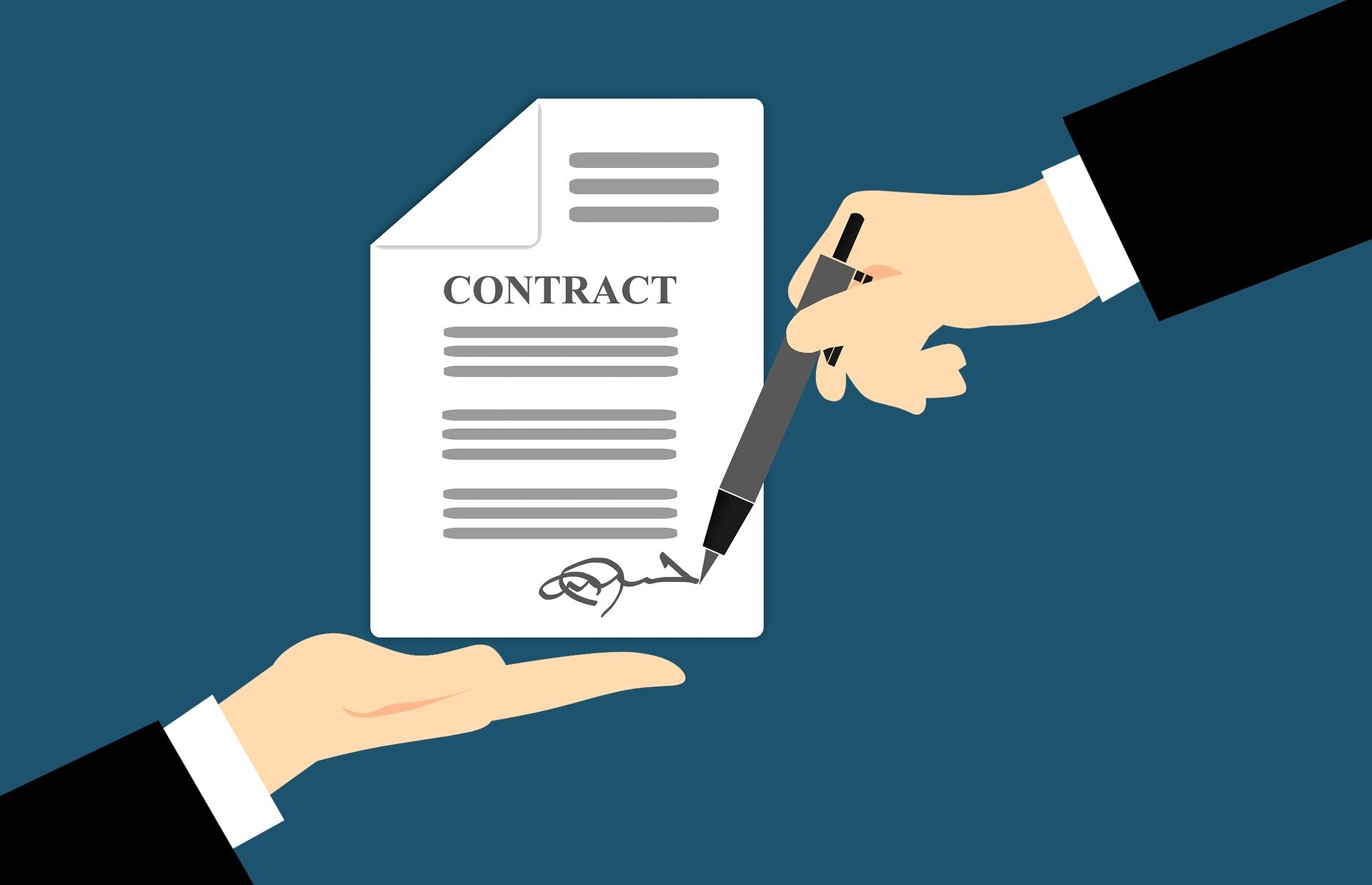The slightest ambiguity in these areas could risk becoming a loophole that could prove to be unfavorable to your business down the line. ~ Aktug Dogan, CEO, Refermate
To help you navigate the complex world of vendor contract negotiation and management, we’ve gathered twelve insightful tips from contract managers and CEOs. From prioritizing proactive involvement and research to maintaining continuous contract assessment and communication, these industry leaders share their strategies to mitigate potential legal risks and ensure the success of your business.
- Prioritize Proactive Involvement and Research
- Focus on Clear Definitions and Expectations
- Incorporate Defined Termination Clauses
- Reserve the Right to Audit
- Ensure Update Clauses in Software Contracts
- Engage Legal Expertise Early in Negotiations
- Include Mutually Agreeable Dispute-Resolution Clause
- Consider Contract Terms When Choosing Vendors
- Create Detailed Scope of Work
- Include Security Provisions in Contracts
- Clarify Ambiguous Language in Contracts
- Maintain Continuous Contract Assessment and Communication
Prioritize Proactive Involvement and Research
We are involved in the work of subdividing land well before approval, when it is a mere gleam in the developer’s eye. Because this process varies across the several municipalities where we perform this work, careful research is essential to manage our risk and the risk of vendors with whom we collaborate.
Our initial findings play a pivotal role in negotiating agreements with our vendor partners as it relates to whether the subdivision will be approved and whether any ultimate improvements to the newly created parcels may be executed in a timely and cost-effective manner. Legal issues may arise where expectations are not met due to reliance on representations made at the outset.
For instance, when a regulatory anomaly caused a delay to such a project, a contractual provision allowed us to renegotiate the timeline without repercussion. Thus, we have found that proactive involvement and careful research into these processes are key to our strategy in vendor contract negotiations.
Erich Wilson, Contract Manager, Wilson Land Surveys, Inc., DBA South Bay Surveys
Focus on Clear Definitions and Expectations
As a personal injury attorney, I have seen firsthand the devastating impact that property injuries can have on individuals and their families. A well-structured contract is crucial, with clear definitions, deliverables, and expectations. When reviewing contracts, identify the key terms and conditions, including limitation of liability, IP rights, confidentiality, termination clauses, and dispute resolution.
For example, a retail store hiring a contractor to install flooring needs to carefully review the contractor’s insurance policy and safety record. This attention to detail can help avoid liability for injuries resulting from the contractor’s negligence.
Rick Hovde, Founding Partner, Hovde Dassow + Deets
Incorporate Defined Termination Clauses
In my role as a Corporate Solicitor, thorough contract management is fundamental to mitigating legal risks for my clients. One specific tip I often employ is incorporating clearly defined termination clauses within vendor contracts.
Recently, a client faced challenges with a vendor who failed to meet crucial delivery timelines, affecting the client’s production schedule. Thankfully, we had negotiated a termination clause specifying penalties for significant delays. This allowed my client to terminate the contract legally, avoiding legal disputes and financial losses.
Michael Edwards, Partner, Michael Edwards Solicitors
Reserve the Right to Audit
No matter how much you trust your vendors, always reserve the right to audit their business. Illegal practices on their side will hurt your business and may even get you in legal trouble. You need to be wary of compliance issues, industry standards, and contractual requirements.
Audits are the only way to guarantee transparency, so reserve that right in your contract. I may never have realized that our vendor was using unauthorized subcontractors had I not audited. It didn’t cause a problem in our day-to-day operations and may never have been a problem. But it was a breach of regulations that could suspend some of our business licenses.
Jasen Edwards, Licensed Real Estate Agent and Coach, Agent Advice
Ensure Update Clauses in Software Contracts
If the vendor is selling software, make sure they include a clause addressing updates and patches. The tech world is dynamic, and there are more cybersecurity threats than ever before. Ensuring you’re contracted to the highest level of updated protection can ensure your reliability for your own customers.
We were once in the situation of addressing a vulnerability we found in vendor software. Instead of having to wait indefinitely, the update clause in the contract ensured a swift and speedy resolution. The clause effectively served as an accountability tool, reinforcing the importance of continuous vigilance in the tech space. It’s a small but crucial step that has proven its weight in gold, ensuring that our collaborations remain progressive and secure.
Mark Varnas, Principal SQL Server DBA and Consultant, Red9
Engage Legal Expertise Early in Negotiations
I approach the negotiation and review of vendor contracts by focusing keenly on mitigating potential legal risks. Engaging our legal team early in the negotiation process allowed us to identify and rectify this legal issue effectively, safeguarding our company’s interests and financial well-being.
In a past contract negotiation with a new vendor for critical components, we initially omitted legal expertise. The negotiations appeared promising, but during the contract review stage, our legal team identified a potential legal risk. Recognizing the potential danger, our legal team renegotiated this clause, shifting the liability back to the vendor, which was more reasonable and in line with industry standards. This change protected our company from potential financial losses, ensuring that the vendor bore responsibility for uncontrollable delays.
Campbell Tourgis, Executive Vice President and Chief Operating Officer, Wainbee
Include Mutually Agreeable Dispute-Resolution Clause
At Starquix, we make sure that our contracts are favorable to us and our suppliers. My tip is to include a dispute-resolution clause that the other party is also happy with. We occasionally experience issues with product quality, but we were able to resolve them with our suppliers quickly. This helps us maintain a good relationship with them.
Derek Capo, COO, Starquix.com
Consider Contract Terms When Choosing Vendors
As a small-business vendor, contracts can literally make or break your business. In most cases, you have multiple vendor options, and while the default is generally price or service, the contract should also be considered.
In my past business, we reviewed and went with a distribution vendor that held the most professionalism in their contract. It was a smart move because there were several instances of litigation in which I could have been involved. However, the contract put the financial responsibility on the distribution company, not my company.
Jason Vaught, Director of Content, SmashBrand
Create Detailed Scope of Work
As a business owner and real estate broker, I’ve learned that in vendor contracts, the devil is in the details. Creating a detailed Scope of Work (SOW) is our secret weapon in mitigating legal risks. The SOW specifies the exact scope of work, materials, quality standards, and penalties for delays. It leaves no room for ambiguity. I once had a contractor falling behind schedule and using subpar materials.
Thanks to our precise SOW, we promptly addressed the issues, referred to the contract terms, and ensured compliance. A meticulous SOW is the cornerstone of successful vendor relationships, preventing legal disputes and protecting our business interests.
Ritika Asrani, Owner and Head Broker, St Maarten Real Estate
Include Security Provisions in Contracts
Potential legal risks can arise from data breaches of companies or clients. Both can lead to prolonged legal cases in the courts. Companies can lose their money or reputation due to it. Hence, companies must include security and confidentiality provisions in the contract while negotiating with vendors.
I did the same for my company. I ensured to review the conditions repeatedly and contacted my legal consultant for their advice, too. I didn’t miss any lines on it. Its provisions enclosed how the vendors would protect my company’s data. Moreover, the vendors disclosed their preventive measures in it. Also, it had criteria for returning the company’s assets or resources after the contract termination.
Sally Johnson, CEO and Founder, Green Light Booking
Clarify Ambiguous Language in Contracts

Check for any ambiguous language when reviewing vendor contracts. Note them down and discuss them further with the other party to clearly define key terms. Anything that involves deliverables, payment terms, timelines, and termination clauses should be clearly established, understood, and mutually agreed upon by both parties.
The slightest ambiguity in these areas could risk becoming a loophole that could prove to be unfavorable to your business down the line. You wouldn’t want that, so it’s best to preempt that by clearly defining important terms from the get-go.
Aktug Dogan, CEO, Refermate
Maintain Continuous Contract Assessment and Communication
The most important thing is not to stop talking. You don’t sign a vendor contract and then set it aside because needs, expectations, and priorities will shift over time for both parties. You should assess vendor contracts throughout their lifetime so you can properly determine their ongoing effectiveness.
And you should communicate about those assessments, both with internal stakeholders and your vendors themselves. Those conversations can help ensure a smoother process and help you make more informed choices to terminate, renew, or renegotiate your contracts together.
Robert Kaskel, Chief People Officer, Checkr


Join the conversation!